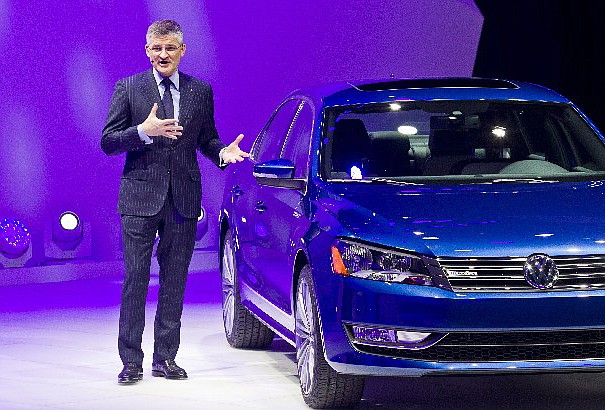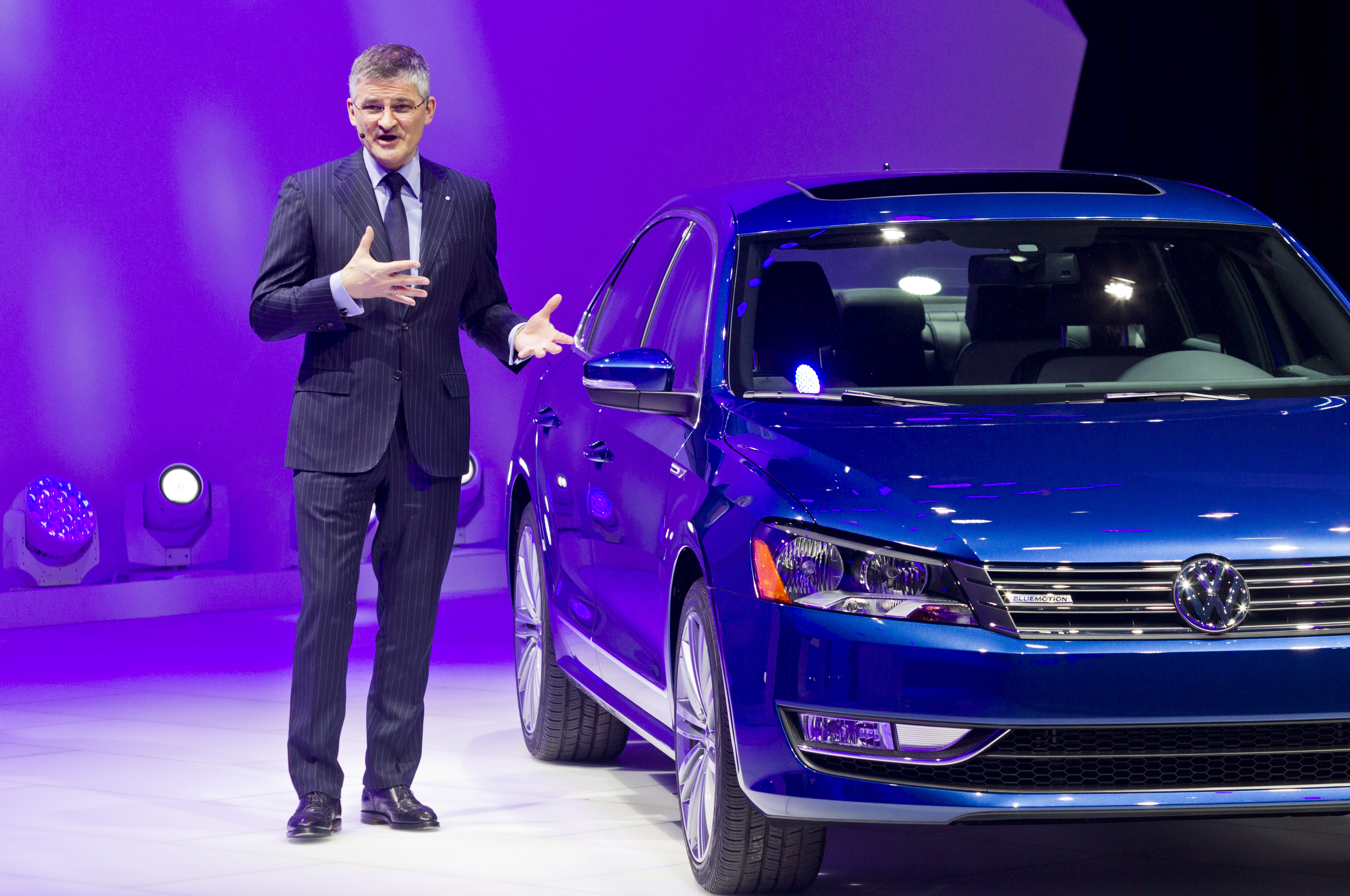Arctic-like weather across much of the nation put a freeze on January auto sales, especially the Chattanooga-made Passat.
Auto information company Edmunds.com estimated that car companies sold about 1 million vehicles in the United States in January, just slightly below the number they sold in the same month a year ago. Sales lost to January's frigid weather are likely to be made up this month, the Edmunds.com report said.
Volkswagen was one of the hardest hit automakers again last month. Volkswagen of America reported that sales fell 19 percent in January, with the Chattanooga-made Passat posting a nearly 30 percent decline over the same month a year ago.
"With our planned wind down of models in run-out, our January sales results were expectedly impacted," said Mark Barnes, vice president of sales for Volkswagen of America. "Nonetheless, we're optimistic we will see a steady pace in the months ahead as our Super Bowl advertisement, Wings, continues to raise awareness of the reliability and durability of our products, and we prepare to launch the next generation Golf family of vehicles.
VW's January sales of 23,494 units compared to 29,018 a year ago. The Passat's sales last month of 6,236 were off from 8,856 in January 2013, the automaker reported.
Sales of all of VW's models fell last month except the Routan minivan, which is being discontinued.
General Motors' sales fell 12 percent in January to 171,486 vehicles compared with the same month a year earlier.
GM said January is typically the lowest sales month of the year. The automaker said its sales were the worst in the South, Midwest and Northeast, all areas that suffered from the extreme cold. GM said its sales were also hurt by a planned reduction in rental vehicle sales.
Nonetheless, GM said it forecast that light vehicle sales in 2014 will be in a range of 16 million to 16.5 million units. That would be the industry's best year since 2007, when 16.2 million vehicles were sold.
Ford Motor Co. said its January fell 7 percent to 154,644.
"Given the difficult weather in our largest sales regions, we are fortunate to have held in at retail as well as we did," said John Felice, Ford vice president, U.S. marketing, sales and service. "In areas where the weather was good, such as in the West, sales were up."
Chrysler Group reported it sold 127,183 vehicles last month, an 8 percent jump compared with the same month a year earlier and the automaker's best January sales since 2008.
"The bad weather only seemed to affect our competitors' stores, as we had a great January with sales up 8 percent and achieved our 46th-consecutive month of year-over-year sales increases," said Reid Bigland, Chrysler's U.S. sales chief.
Toyota reported January sales results of 146,365 vehicles, a 7.2 percent decrease from what it sold in the U.S. in the same month a year earlier.
"January was off to a solid start, but the weather conditions slowed industry sales in key markets late in the month," said Bill Fay, Toyota's division group vice president and general manager.
He said Toyota expects sales to rebound this month.
Nissan said its U.S. sales rose 11.8 percent last month to 90,470 vehicles, its best January on record.
"In spite of challenges posed by Mother Nature, Nissan continued on a roll in January," said Fred Diaz, Nissan's senior vice president for U.S. sales and marketing.
Subaru also reported its best January selling cars in the U.S. -- a 19 percent gain to 33,000 vehicles. It was helped by increased availability of vehicles such as the Forester, which previously had been in short supply.
The prices people are paying for cars continued to rise last month.
Auto shopping company TrueCar.com estimated that the average transaction price for light vehicles hit $30,934. That was up about $800, or nearly 3 percent, from a year ago, but down $422, or more than 1 percent, from December. Prices are always higher in December because it is a big month for luxury car sales.
"The industry couldn't ask for a more ideal start to the year with transaction prices up and incentive spending down," said Larry Dominique, executive vice president of TrueCar. "Whether this type of healthy growth is sustainable remains to be seen."

